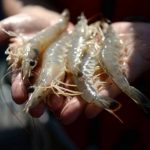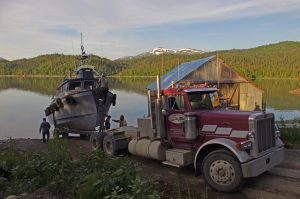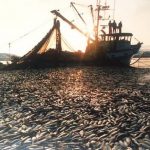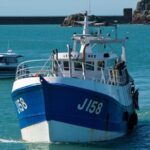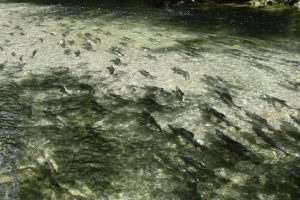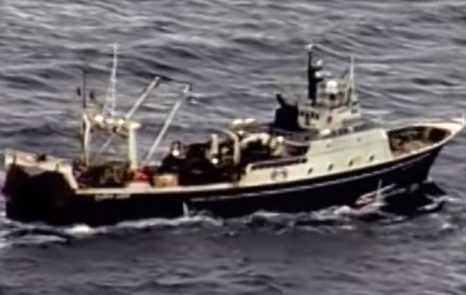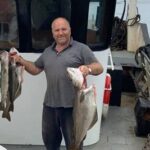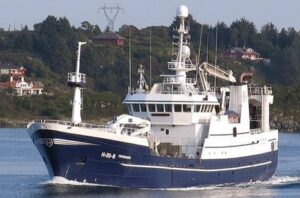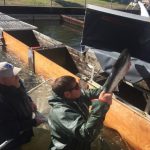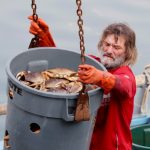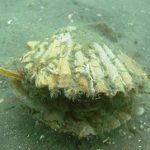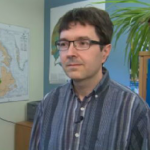Tag Archives: privatization
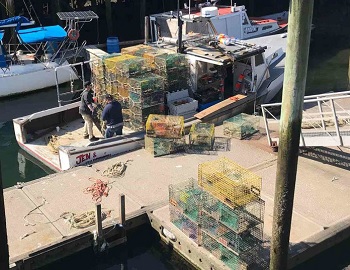
The Lunacy of Global Seafood Supply Chains
Like all global supply chains right now, this one feels unstable and unsustainable. Most of the seafood we eat in America, even in Gloucester, the country’s oldest seaport, comes from overseas. Most of what local fishermen catch is sent elsewhere. “The models aren’t designed to feed local and regional markets,” Tolley says. Those famous fish sticks bearing the logo of a Gloucester fisherman? By the time they reach your frozen foods section, they’ve made an exhausting global journey, exported for processing, then reimported. Nearly 500 commercial boats fished out of Gloucester a decade ago. Today, there are two dozen. This reflects both the decades-long collapse in groundfish stocks—the cod and haddock that once abounded in the cold waters off Cape Ann—and ever-more-aggressive federal measures limiting who can fish and for how much. >click to read< 09:07
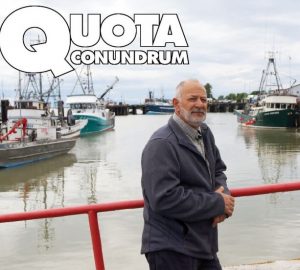
Canfisco hopes to defend quota system at Ottawa committee
Richmond-based Canfisco hopes to present to a new Standing Committee on Fisheries and Oceans examining West Coast fishery regulations come next February, at the latest. Rob Morley, vice-president, production and corporate development at Canadian Fishing Company (Canfisco), told the Richmond News Monday that the present licensing and quota system so often criticized by the likes of independent fishers and environmental groups has merits. There is growing concern — including Liberal MP Ken Hardie, who requested the committee — that licenses and quotas are becoming too expensive to lease and prohibitively expensive to purchase. As such, capital-rich companies and investors are taking fishing profits from community-based fishers. >click to read<08:25
Independent Kodiak Fisherman Addresses his Concerns to Commerce Secretary Wilbur Ross, and Jim Balsiger
 Dear Jim & Secretary Ross, Thank you, once again, for a response to my letters (19 October, 2016) re Trawl violations in the Gulf of Alaska. I appreciated the website reference(NOAA OLE Enforcement-Actions) that allowed review of the NOVA and/or NOPS cases concluded before June 30, 2016. I await review of the February report, as well. Obviously, since my letters and your responses, the NPFMC December session indefinitely postponed or tabled the GOA Trawl Bycatch program drafting. One can only hope this matter of privatizing the groundfish which causes an extremely negative effect on other species (and fish segments) —such as halibut, and crab recovery in the GOA— has seen its end.,, Had it not been for congressional end-runs of former Senator Ted Stevens, two key things would not have happened. Read the letter here Ludger W. Dochtermann 16:52
Dear Jim & Secretary Ross, Thank you, once again, for a response to my letters (19 October, 2016) re Trawl violations in the Gulf of Alaska. I appreciated the website reference(NOAA OLE Enforcement-Actions) that allowed review of the NOVA and/or NOPS cases concluded before June 30, 2016. I await review of the February report, as well. Obviously, since my letters and your responses, the NPFMC December session indefinitely postponed or tabled the GOA Trawl Bycatch program drafting. One can only hope this matter of privatizing the groundfish which causes an extremely negative effect on other species (and fish segments) —such as halibut, and crab recovery in the GOA— has seen its end.,, Had it not been for congressional end-runs of former Senator Ted Stevens, two key things would not have happened. Read the letter here Ludger W. Dochtermann 16:52
Don’t bite on risky lure of ‘catch shares’
 I can’t think of a more appropriate saying to use than “a wolf in sheep’s clothing” to describe the reality of what the Seafood Harvesters of America want to do with our offshore fisheries. The Post and Courier recently published an article and editorial that bought into the sheep’s clothing side. Year-round fishing and better fisheries data are touted. Who could be against that? But there’s a wolf: privatization of our fisheries through a scheme called “catch shares,” where fishermen and corporations are actually given ownership of our fisheries with shares that can be bought or sold like stock on Wall Street. That’s the real reason for the Seafood Harvesters of America’s existence. They’re working hard to ensure commercial fishermen own our fisheries, and in this case it’s our snapper and grouper, starting with a pilot program that could be considered by the South Atlantic Fishery Management Council and NOAA Fisheries next year. Read the op-ed here 08:02
I can’t think of a more appropriate saying to use than “a wolf in sheep’s clothing” to describe the reality of what the Seafood Harvesters of America want to do with our offshore fisheries. The Post and Courier recently published an article and editorial that bought into the sheep’s clothing side. Year-round fishing and better fisheries data are touted. Who could be against that? But there’s a wolf: privatization of our fisheries through a scheme called “catch shares,” where fishermen and corporations are actually given ownership of our fisheries with shares that can be bought or sold like stock on Wall Street. That’s the real reason for the Seafood Harvesters of America’s existence. They’re working hard to ensure commercial fishermen own our fisheries, and in this case it’s our snapper and grouper, starting with a pilot program that could be considered by the South Atlantic Fishery Management Council and NOAA Fisheries next year. Read the op-ed here 08:02
How the privatization of our oceans is sinking fishermen
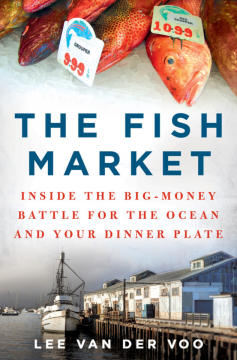 The town of St. George, off the Bering Sea near Alaska, was long home to some of the most robust pollock fishing in the country. But due to a fishing rights management scheme called “catch shares,” the town has no rights to fish its own waters and regularly watches their former industry literally pass them by. “Every year, the industry takes about $2 billion in gains out of this fish resource on the Bering Sea,” St. George Mayor Pat Pletnikoff tells Lee van der Voo in “The Fish Market.” “Not one plug nickel sticks to St. George.” Catch shares work by dividing our oceans just like any other physical property, creating theoretical property lines. Then the rights to fish different species in various sections are awarded to applicants — which could be individuals or companies — based on how much fish they catch over a certain period of time. While catch shares are credited with greater species management — the US government found in 2007 that of 230 species of fish, 92 were going quickly extinct due to overfishing — the catch-shares program has virtually privatized our oceans, destroying the livelihoods of many lifelong fishermen and other small businesses in the process. Read the rest here 08:14
The town of St. George, off the Bering Sea near Alaska, was long home to some of the most robust pollock fishing in the country. But due to a fishing rights management scheme called “catch shares,” the town has no rights to fish its own waters and regularly watches their former industry literally pass them by. “Every year, the industry takes about $2 billion in gains out of this fish resource on the Bering Sea,” St. George Mayor Pat Pletnikoff tells Lee van der Voo in “The Fish Market.” “Not one plug nickel sticks to St. George.” Catch shares work by dividing our oceans just like any other physical property, creating theoretical property lines. Then the rights to fish different species in various sections are awarded to applicants — which could be individuals or companies — based on how much fish they catch over a certain period of time. While catch shares are credited with greater species management — the US government found in 2007 that of 230 species of fish, 92 were going quickly extinct due to overfishing — the catch-shares program has virtually privatized our oceans, destroying the livelihoods of many lifelong fishermen and other small businesses in the process. Read the rest here 08:14
Rep. Bradley Byrne argues for new red snapper rules in face of Obama veto threat
 Even as members of the U.S. House began debate on changes to the act that regulates the nation’s fisheries, the Obama administration indicated that the president would be advised to veto the revised legislation. The bill has the support of a diverse group of businesses, organizations and individuals representing fishermen and fishing communities from the East, West and Gulf coasts, who jointly signed a letter supporting HR 1335. The letter states its opposition, however, to a proposal from the five Gulf state marine resources directors,, Read the rest here 15:48
Even as members of the U.S. House began debate on changes to the act that regulates the nation’s fisheries, the Obama administration indicated that the president would be advised to veto the revised legislation. The bill has the support of a diverse group of businesses, organizations and individuals representing fishermen and fishing communities from the East, West and Gulf coasts, who jointly signed a letter supporting HR 1335. The letter states its opposition, however, to a proposal from the five Gulf state marine resources directors,, Read the rest here 15:48
In Depth: Powered by capital and its desire for profit – The Global Ocean Grab: A Primer
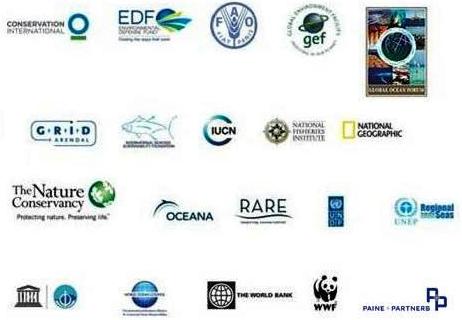 In this primer the most important questions regarding the effects and mechanisms of ocean grabbing are answered. It contains all you need to know to get a good grasp of important processes and dynamics surrounding ocean grabbing. Read the rest here. 10:09
In this primer the most important questions regarding the effects and mechanisms of ocean grabbing are answered. It contains all you need to know to get a good grasp of important processes and dynamics surrounding ocean grabbing. Read the rest here. 10:09
Seth Macinko – Challenges facing small-scale fisheries – The Privatization Model, Ocean Grabbing
Rhode Island University Associate Professor Seth Macinko delivering his keynote speech to the delegates of the 6th World Forum of Fisher Peoples (WFFP) General Assembly. Published on Sep 2, 2014 09:34
Gulf of Alaska Groundfish Ratz: Kodiak assemblies’ letter misses the protective mark by Stephen Taufen
January 26, 2013
In December, the Federal Register declared that the North Pacific Fisheries Management Council is proceeding on giving away federal fish resources to selected trawl recipients in the Gulf of Alaska. Homer, Kodiak, King Cove and Sand Point are among the most affected — all challenged to economically protect their fishery dependent coastal municipalities and boroughs.
The local city of Kodiak and the Kodiak Island Borough’s joint fishery work group has shown concern and help many meetings over the past seven months, listening to input from all sides. One must applaud when elected officials get highly involved; but that is only if they truly keep the public’s interests foremost. They could take a lesson from New Bedford’s former Mayor Lang’s firm stance about preserving fishing jobs and protecting the local economy against privatization forces. Read more

































